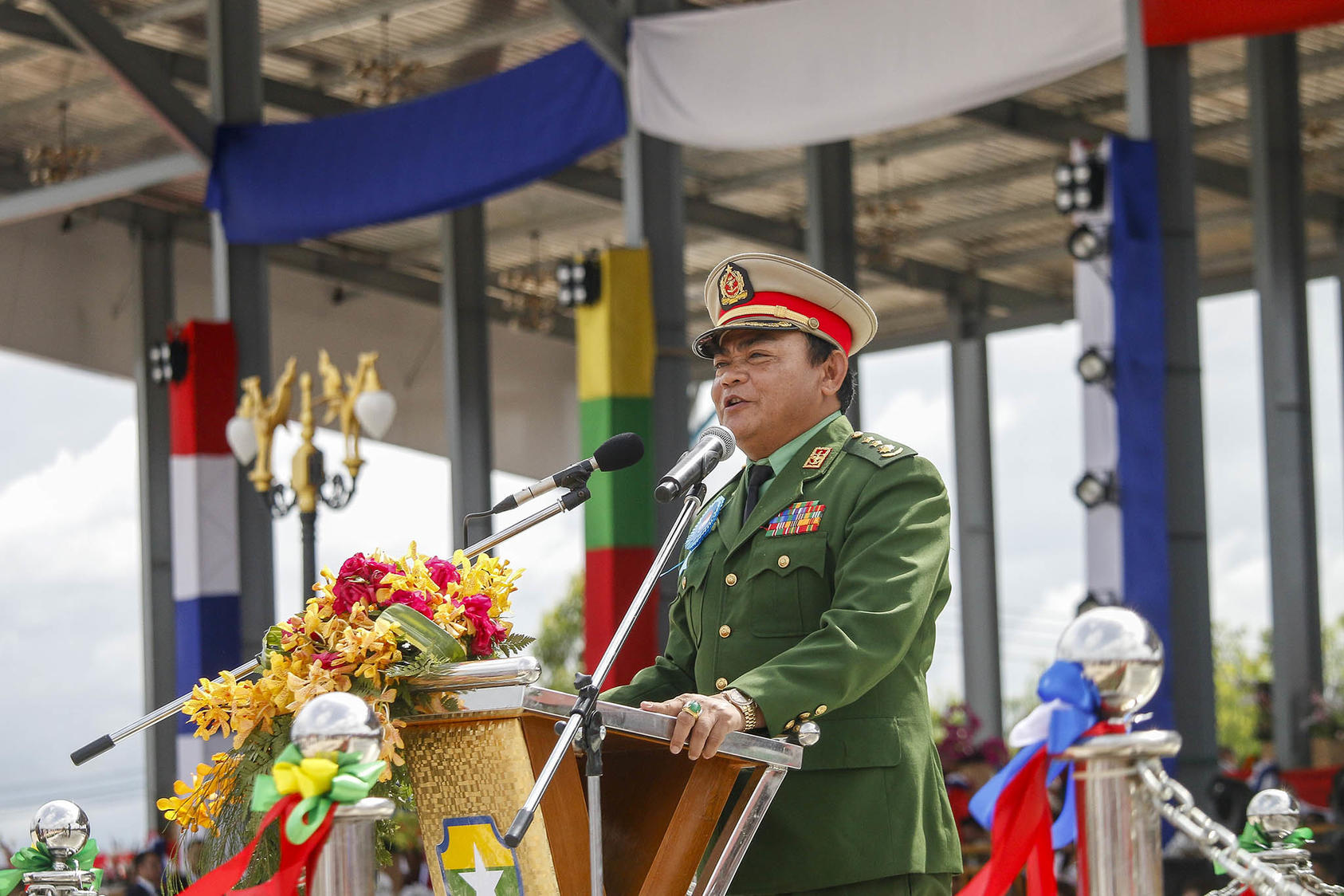BY: Jason Tower; Priscilla A. Clapp
 Seeking to profit from China's lucrative but illegal gambling market, a shady web of actors has begun building resort cities in Myanmar’s Karen State to cater to Chinese gamblers. This report casts light on the actors behind Myanmar’s illegal gambling sector, their linkages to Chinese government entities and to Myanmar's armed groups and military, and how their actions could upend Myanmar’s prospects for peace.Chit Thu, commander of the Karen State Border Guard Force, has been a key figure in developing the Yatai New City Project. (Nyein Su Wai Kyaw Soe)
Seeking to profit from China's lucrative but illegal gambling market, a shady web of actors has begun building resort cities in Myanmar’s Karen State to cater to Chinese gamblers. This report casts light on the actors behind Myanmar’s illegal gambling sector, their linkages to Chinese government entities and to Myanmar's armed groups and military, and how their actions could upend Myanmar’s prospects for peace.Chit Thu, commander of the Karen State Border Guard Force, has been a key figure in developing the Yatai New City Project. (Nyein Su Wai Kyaw Soe)
Summary
Complex transnational networks of Chinese investors, forced out of Cambodia for illegal gambling activity, are relocating to Karen State to build three megacities as a hub for casinos. They use partnerships with local armed groups, operating under the authority of the national army, to gain access to land, offering in return a share of the profits.
The Myanmar government has yet to license casinos, meaning this sector remains illegal. Investors have ignored government approval processes, however, and moved rapidly during the COVID-19 pandemic to build facilities to house illegal gambling.
To circumvent Chinese laws against gambling, ethnic Chinese with citizenship in other countries spearhead these projects. Of concern to Beijing, they have co-opted Chinese government institutions and agencies to present their activities as central to China’s Belt and Road Initiative.
These megacities flagrantly undermine Myanmar’s efforts to advance reforms serving the national interest, and Naypyitaw is responding with establishment of a commission to investigate them.
This kind of investment threatens to reverse recent gains made by decades of U.S. assistance supporting democratic reform in Myanmar, and merits strong American support for efforts to control it.
This report examines the construction of unregulated, gambling-based cities in Myanmar by ethnic Chinese investors in partnership with local armed groups. It traces the transnational networks supporting this illicit activity, and raises serious questions regarding the role of the Chinese government in the projects. Based on online materials in Chinese, media reports, interviews, and public records, the report explores how the intrusion of organized crime could fuel further conflict in the country.
About the Authors
Jason Tower is USIP’s country director for Myanmar. In addition to his extensive previous experience in peacebuilding organizations in China and Southeast Asia, he is fluent in Mandarin and has published widely on China’s involvement in peace and security issues. Priscilla Clapp is a senior advisor to USIP’s Asia Center. Her career in the U.S. Foreign Service included serving as chief of mission in Myanmar.
No comments:
Post a Comment